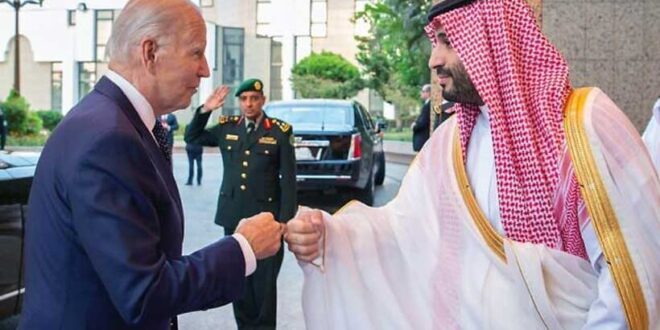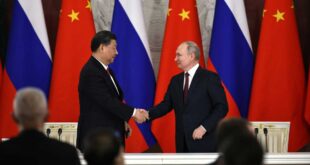Not quite four months have passed since President Biden’s controversial meeting with Saudi Crown Prince Mohammed bin Salman and his historic visit to Saudi Arabia under the banner of energy security. On Wednesday, US President Joe Biden voiced his disappointment with the decision of the OPEC+ alliance to cut crude oil supplies by two million barrels per day beginning in November. The decision was a major blow to the U.S. administration and to President Biden, who described it as hostile act from Saudi Arabia and that Riyadh would face sanctions, and the White House said it would reevaluate relationship with Saudi Arabia, and accused it of siding with Russia.
The disagreement is not new and the United States has criticized the decisions of OPEC + several times, but what is new in the matter is that this decision came in this crisis situation globally and the Ukrainian-Russian war, which the United States considered a stab in the back at this sensitive time, and comes from its most important allies in the region, which will help Russia and contribute to financing its war on Ukraine.
This event came in the midst of US-Saudi disputes for human rights, foremost among which is the case of journalist Jamal Khashoggi, which the US president turned a blind eye to in his visit to Saudi Arabia despite his previous threats to make them pay the price, and describing it as a pariah state, hoping to achieve his goal of increasing oil production, which may enhance his popularity and improve the image of his Democratic Party domestically for the upcoming elections, in which Biden failed miserably during this visit to the Kingdom and returned empty-handed.
Mohammed bin Salman has now become the main player in the Kingdom, especially after his appointment as a prime minister, which was exclusive to the king until his death, and which will strengthen his role internally in conducting future plans and visions and in giving him externally greater power and sovereign immunity from any prosecutions against the background of the Khashoggi case.
Relations between the two countries became more tense during the Biden era, as Washington reopened the file of the Iranian nuclear agreement, as well as worked to remove the Houthis from the list of terrorism, and froze arms deals between Washington and Riyadh, which prompted the Kingdom and other Gulf countries to head east towards China and Russia, especially after the failure of The United States in protecting the security of the Gulf from Houthi missile attacks, which halted nearly half of the Kingdom’s oil production in September 2019 and hit sensitive sites in Saudi Arabia and the UAE.
In the current development, the challenge has become clear between Riyadh and Washington, as the Kingdom sided with the Russian side and strongly supported the OPEC + decision to reduce the daily production rate despite repeated US warnings to the Saudi leadership, which constituted a strong blow to the Biden administration, as it is now clear that the Kingdom, led by Mohammed bin Salman, wants to say that Its political decision stems from its interests and the interests of its people and is not subject to any external dictates. The UAE supported the Russian side in a similar manner as the Kingdom, and this was evident by its abstention from voting to condemn Russia’s war on Ukraine through its non-permanent member of the Security Council. The UAE confirmed its position during the recent visit of UAE President Mohamed bin Zayed to Russia in the past two days.
Despite repeated requests from the United States of America, Saudi Arabia refused to increase production. Observers saw that there is a new and unprecedented policy between the two sides, and Saudi Arabia is no longer as willing as before to comply with everything that the United States of America demands of it. Instead, it has adopted a policy of giving in exchange for its positions, the most significant of which is the American support for its war in Yemen, as well as its support for its nuclear project and its non-interference in matters of human rights in Saudi Arabia and other issues.
Saudi Arabia’s refusal to submit this time, as well as the lack of attention by the United States to Saudi demands, may make us witness in the coming days a greater rift in relations between the two sides and it is not excluded that Washington may resort to accelerating the process of reaching an agreement with Iran for its nuclear program and allowing it to pump large quantities of oil to cover the deficit in the global market and reduce its prices.
Recent disagreements and their buildup might cause a serious breakdown in US-Saudi ties and alter the nature of regional alliances significantly. Will these differences end the historical relations between the Gulf and Washington? Or will it pass like its predecessors? And will the US response to Saudi Arabia be just an authorization for it to open wider relations with Russia and China? Will Gulf relations with Russia and China have an impact on Iranian-Gulf relations and the stability of the Middle East? Many questions will be answered in the coming days.
 Geostrategic Media Political Commentary, Analysis, Security, Defense
Geostrategic Media Political Commentary, Analysis, Security, Defense





